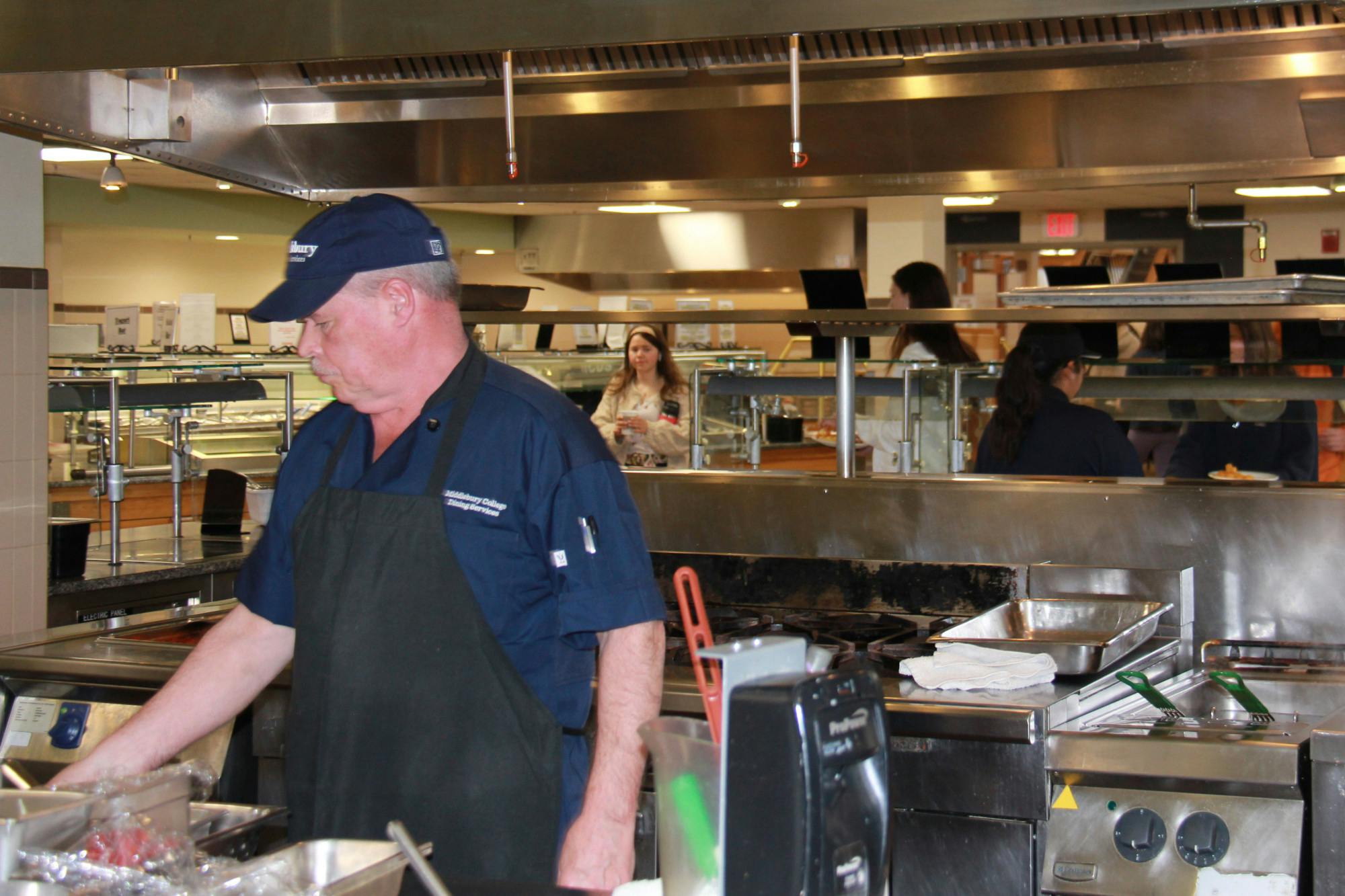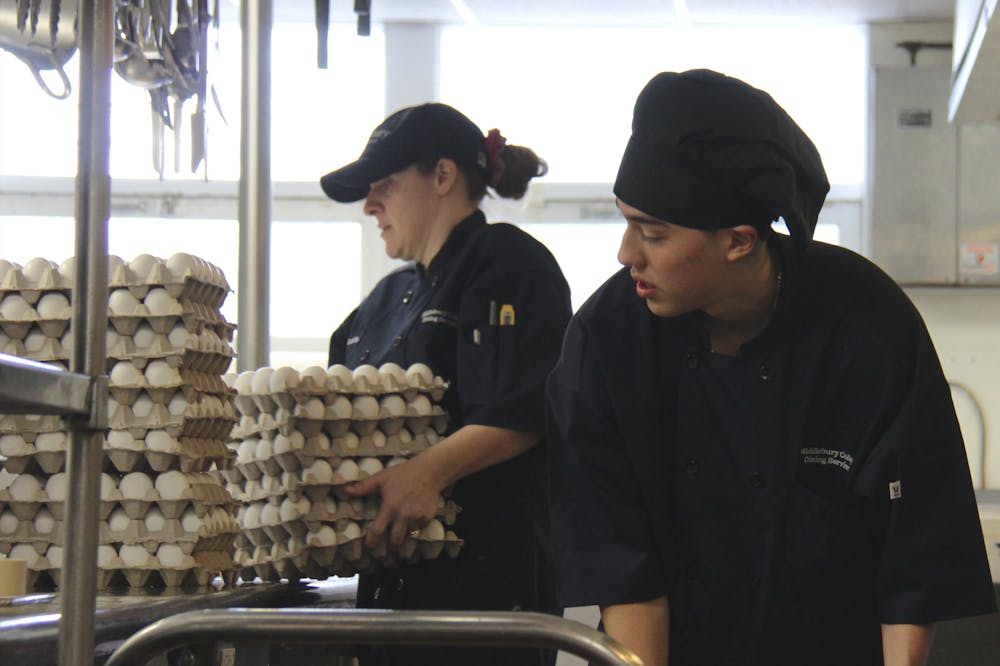Both college staff and students have long enjoyed the sense of community within Middlebury dining. However, policy adjustments that affect staff employment and autonomy represent a steady shift in dining over the past 15 years that is changing this pillar of campus life.
The connections between staff at Proctor Dining Hall are essential to their work experience and positive attitudes, and to the overall dining environment. While there is a strong sense of fulfillment and connection felt among many of the current dining hall staff, the implementation of new policies — including hard caps on wages and changes to the food production structure — threaten this unique sense of community for long-time staff.
“Back then it was a real tight sense of family,” said Tim Whitney, a cook at Proctor for over 20 years, reflecting on his early days working at Middlebury. “You came to work, you worked, and outside work you went out and you did stuff with these people. Now, that's really not the case.”
Despite the changed nature of the current staff dynamics, many Proctor staff remain happy with their jobs and commented on the sense of satisfaction they feel in their positions. Staff largely attributed this contentment to the new people who have been hired, and the approach of staff in administrative positions.
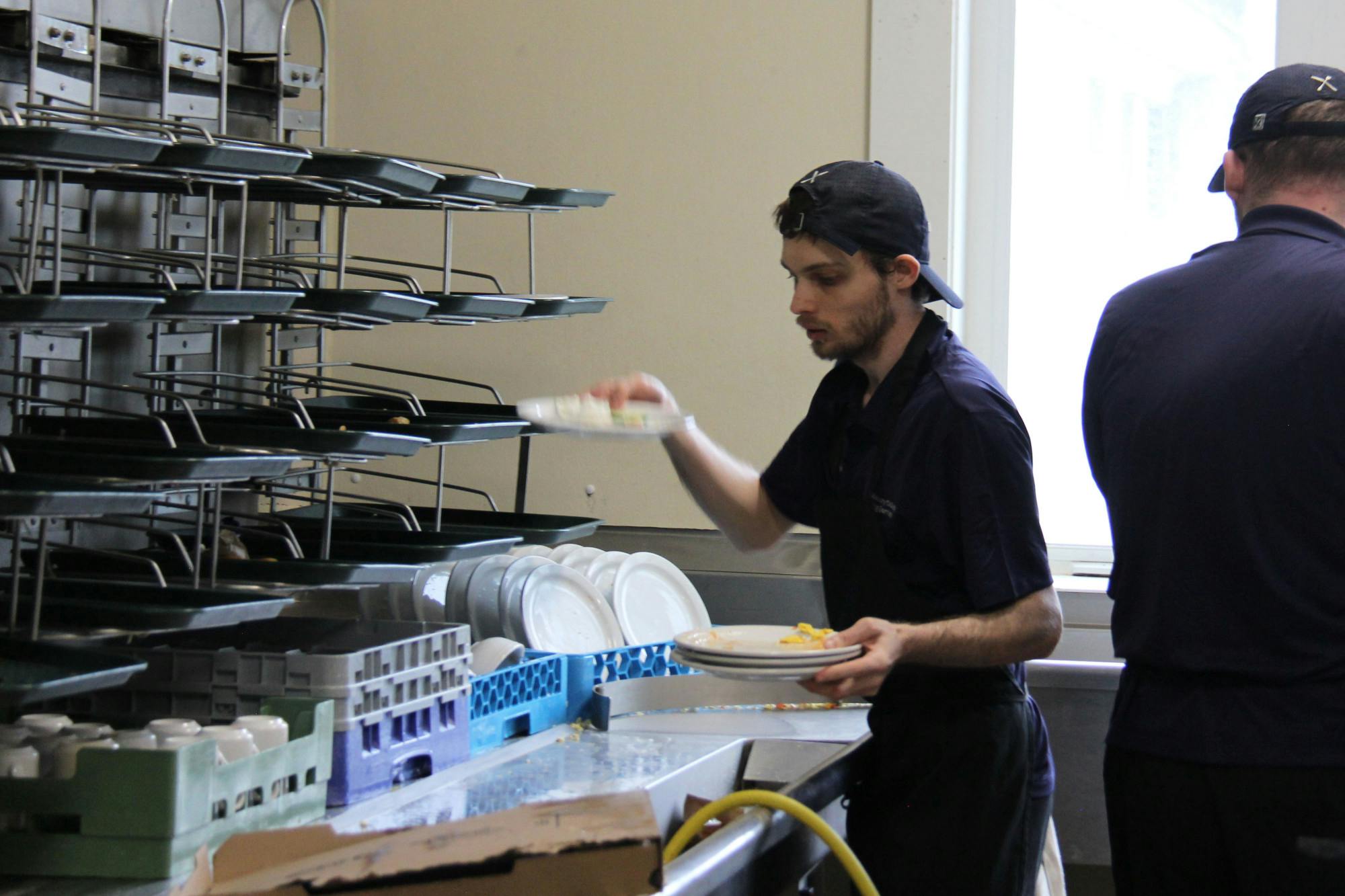
People in leadership positions at the dining hall are viewed positively by the dining hall staff.
Proctor dishwasher Oren Rhodes reflected this sentiment and noted that managers and directors consider the needs and happiness of their staff members.
“They are just good people and they want to make us happy,” Rhodes said.
“Consistently everyone is a great group,” said Chris Lafambroise, a chef and manager at Proctor. “Everyone respects each other, everyone wants the college to succeed, and so they all give it their all.”
Staff who were hired more recently shared a similar feeling. Wren Hobbs, a Proctor cook who worked in a similar role at a restaurant in town for 9 years before coming to Middlebury, commented on the sense of togetherness she felt almost immediately after being hired by the college.
“It’s a totally different atmosphere and a lot more team oriented and I love it. I’ve only been here less than two years and I think it's like the greatest thing,” Hobbs said.
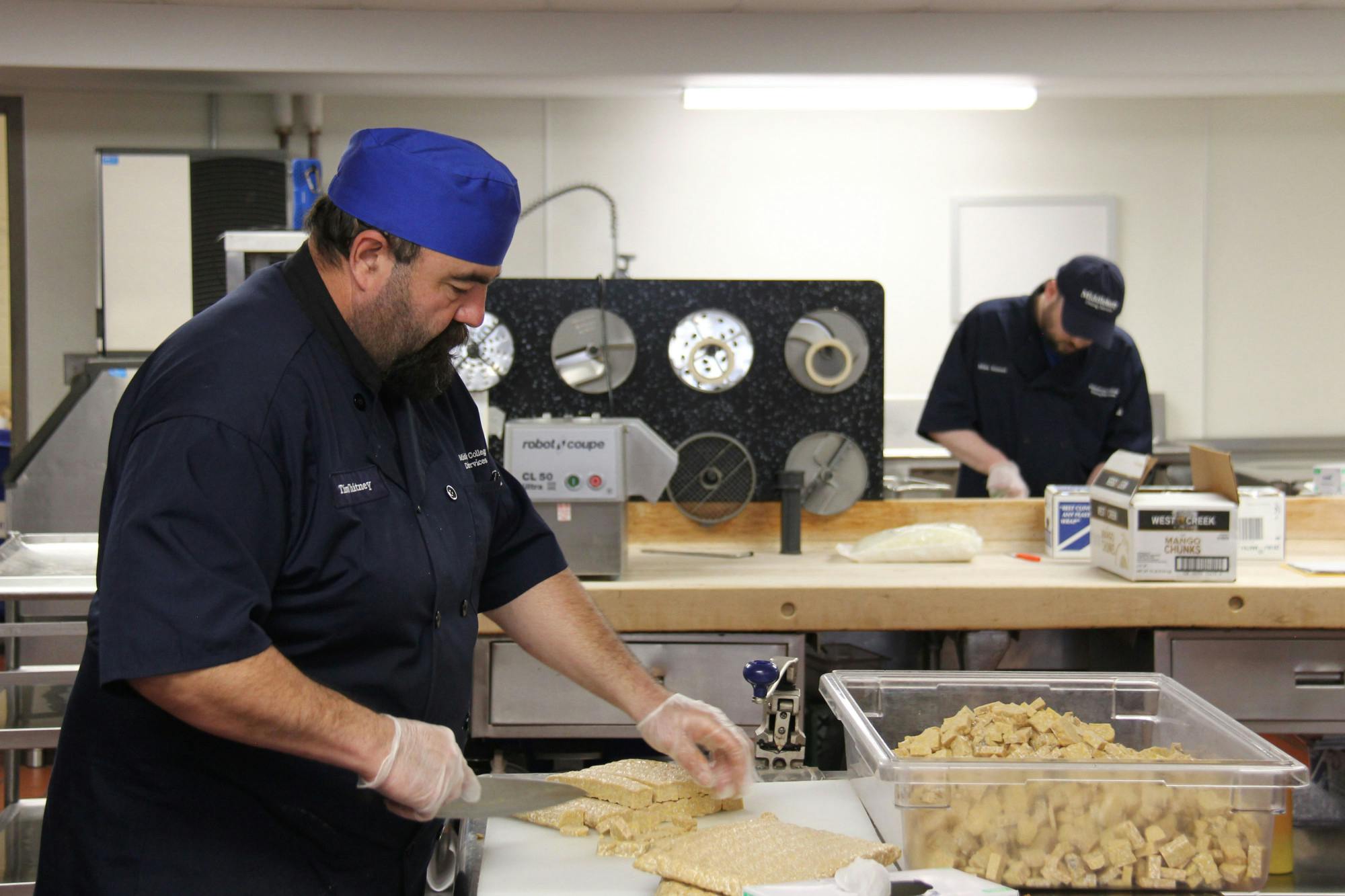
Even though there is a predominantly positive sentiment shared by the staff, recent changes may threaten this sense of community and belonging among Proctor employees.
Dining hall staff who spoke with The Campus described a guarantee on not implementing a hard cap on wages was one way the college was initially able to maintain such robust tenure among its staff. Since the implementation of the skill matrix compensation system in July 2022, the college has gone back on this policy, establishing a fixed income ceiling for both salary and hourly wages within each pay grade.
The cap reduces the incentive for long-term employees to stay in a job where there is no more room to grow.
“We were told there'd never be a cap on pay, that there would never be a ceiling. And now with our new system, there's a cut where you can start out and where you can get to,” Whitney said.
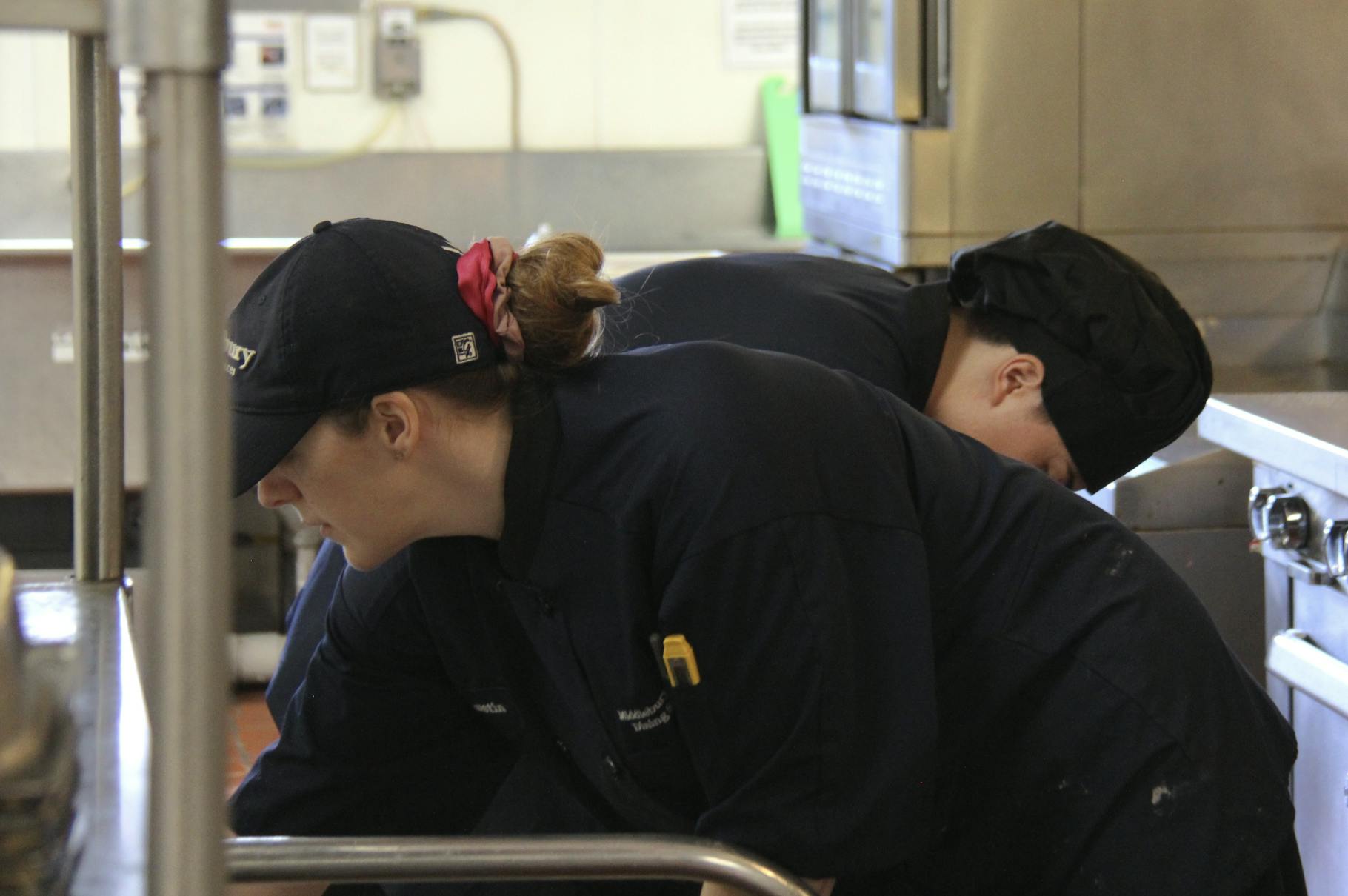
Whitney estimated that in the last 15 years, there have been a combined 500 years of service lost among staff that decided to leave for salary reasons. Many of the individuals who resigned left with 30 or 40 years of experience each.
“Let's say you have 20 years left of service, you might get a cost of living, because the market might go up. But there's still a ceiling. So is it worth dedicating many more years of service to really never move?” Whitney said.
Whitney is not alone in asking this question. Many cooks at Middlebury must now weigh if their wages are enough when deciding whether or not to stay on staff at the college. While some decide that the benefits the college offers are a compelling enough reason to stay, an increasingly competitive job market is making these perks less attractive. The strong sense of community that so many staff valued is at risk with the steady depletion of senior staff.
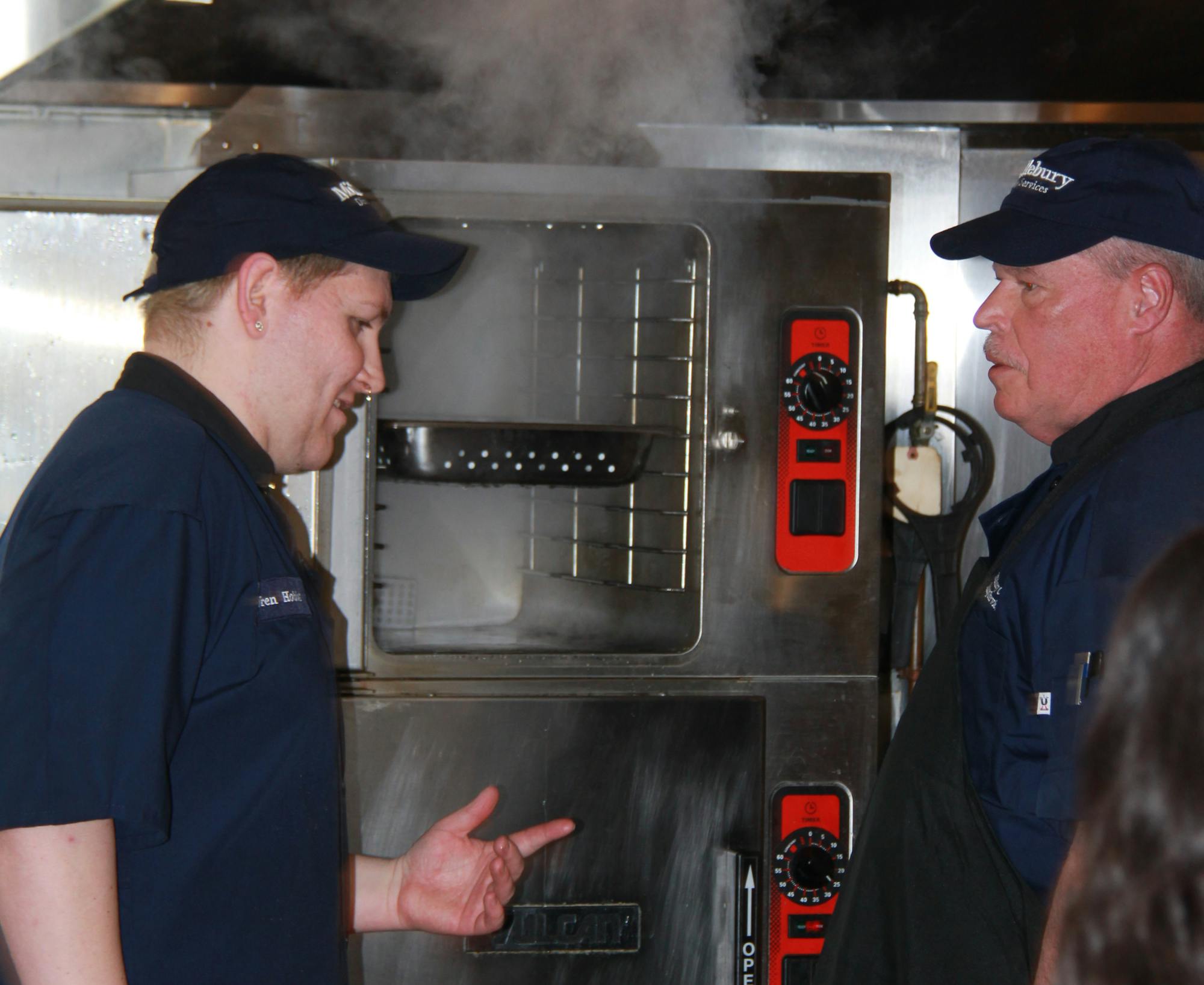
In addition to changes in staff compensation policy, there have been gradual shifts in the last decade to streamline dining services, further accommodate students with dietary restrictions and create more options for dining. These shifts include stricter menus with more fixed guidelines and a proposal to switch to an “action station” system, in which one chef is assigned to make the same food every day.
“Back then we were allowed to be a lot more creative,” Ashely Austin, a cook at Proctor said. “We aren’t allowed to do that anymore, we have to follow the recipe, and so the cooking part isn’t as enjoyable for me as it used to be, because we aren’t allowed to wing it.”
While these changes make sense from a consumer perspective, they deprive the job of its potential for nuance and creativity, staff said. Long-time staff fear this pattern of drifting away from autonomy for dining hall employees, as shown by the action stations, will detract from the sense of fulfillment they derive from their work.
“I think that would really probably push a lot of people away, to come in knowing five days a week you're doing one thing” Whitney said. “I'll be here for life, but I do think a reason a lot of the cooks left is they lost some kind of free rein. We still care a little, but now it's tighter parameters. But when this new system gets up and running, it doesn't matter what cook does it, it's going to be the same.”
Whitney described the meaning in his job as the ability to create something that people can universally enjoy and share.
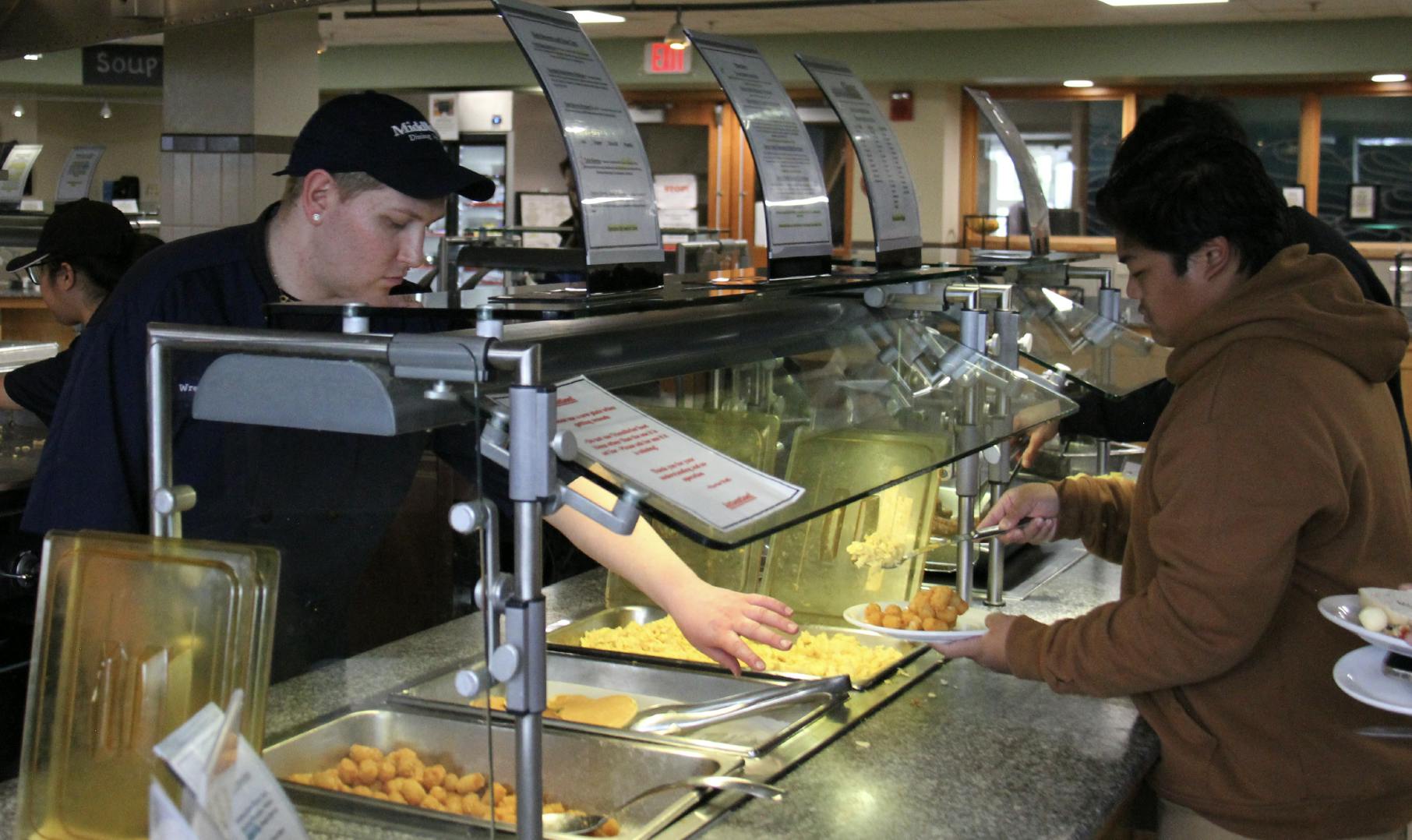
“A lot of the cooks take pride in what they do. They might push themselves a little bit more than expected just to put out the same product, a consistent product for the students. So I do feel the students really appreciate it. I mean, you'll hear a lot of them come through and say, ‘I like eating here,’ That's pretty awesome to hear on a daily basis,” Whitney said.
Working in dining means providing an experience of commensality, in which everyone participates in some capacity. This becomes compromised in a scenario where dining is commercialized, staff members said.
If the feeling of social cohesion and mutual support is lost between staff, students will feel its effects in the dining hall. If people feel connected to the impact of their work and the importance of communal belonging, dining services will remain an interactive space, enabling some of the most essential social interactions between students and staff on campus.
While there is a fundamental agreement among staff that the workplace environment is pleasant, the camaraderie fostered around Proctor Dining Hall is at risk, particularly with new policy changes on the horizon.
